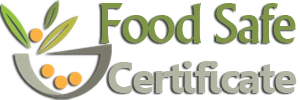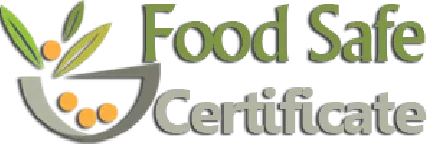Signing up for certification and training with FOODSAFE in Saskatoon
Saskatoon First Aid offers a variety of ways to sign up for food safety training. The most popular among tech-savvy students is online enrollment. If you visit the Saskatoon First Aid website, you will find an interactive form that you can fill up online. After clicking submit, we will receive your request to sign up for FOODSAFE training in Saskatoon – but expect a confirmation or a reply during regular business hours. You can however, send in your application at anytime of the day.
Other ways to sign up for training are: e-mail, telephone call, and in person. The last two options can only be done during business hours. E-mails are the same as online enrollment; expect a reply during business hours.
The foodborne illness burden
Foodborne illness (FBI) is not just one condition – it is a variety of disease caused by ingestion of pathogens (disease-causing microorganisms) or toxic chemicals. These dangerous substances end up on food due to improper handling; the contaminated food gets sold and ingested by an unsuspecting customer – after which the symptoms of FBI manifest.
Common signs and symptoms that you have ingested a disease-causing pathogen: nausea, vomiting, and diarrhea. You may also experience abdominal pain and cramps. For most cases, symptoms resolve within 3 to 4 days, sometimes almost a week, but if your symptoms become severe (even in just a few days) or persist, seek medical help. You may become severely dehydrated or need antibiotic treatment.
Pathogens and improper food handling
Pathogens that commonly contaminate food are: (1) Norovirus, (2) Campylobacter spp., (3) Clostridium perfringens, (4) Salmonella (expect S. typhi), and (5) Staphylococcus aureus. Due to improper handling, substances can contaminate food and be ingested by consumers. If a food service worker doesn’t wash his/her hands, forgets to sanitize the workplace and utensils, doesn’t cook food thoroughly, or leaves food out in room temperature for a long time, it can cause bacteria to grow or deposit on the food.
This is where food safety training comes is. Safe food handling is taught in Saskatoon First Aid’s FoodSafe classes.
- FoodSafe 1 is a basic training course for anyone interested in food safety. This is also one of the certification courses approved by the Saskatoon health authorities as a requirement for food service workers. The syllabus includes microbiology and pathogenesis of foodborne illness, workplace sanitation and housekeeping, hygiene techniques, and many more. The course can be taken in a single eight-hour session or two four-hour sessions over a single day.
- FoodSafe 2 is an advanced course that is designed for supervisory staff of food establishments. The twelve-hour program is completed in two days, teaching students about proper planning and management of a food business. The syllabus covers health permits/licenses, personnel training, and maintenance of the facility.
Getting started: Vomiting, diarrhea, and dehydration
The most dangerous part about foodborne illness is dehydration. Due to constant loss of fluid and electrolyte loss, the body can become severely dehydrated. Be sure to drink lots of fluids that replenish both water and electrolyte loss (like Gatorade!) to keep yourself hydrated.

